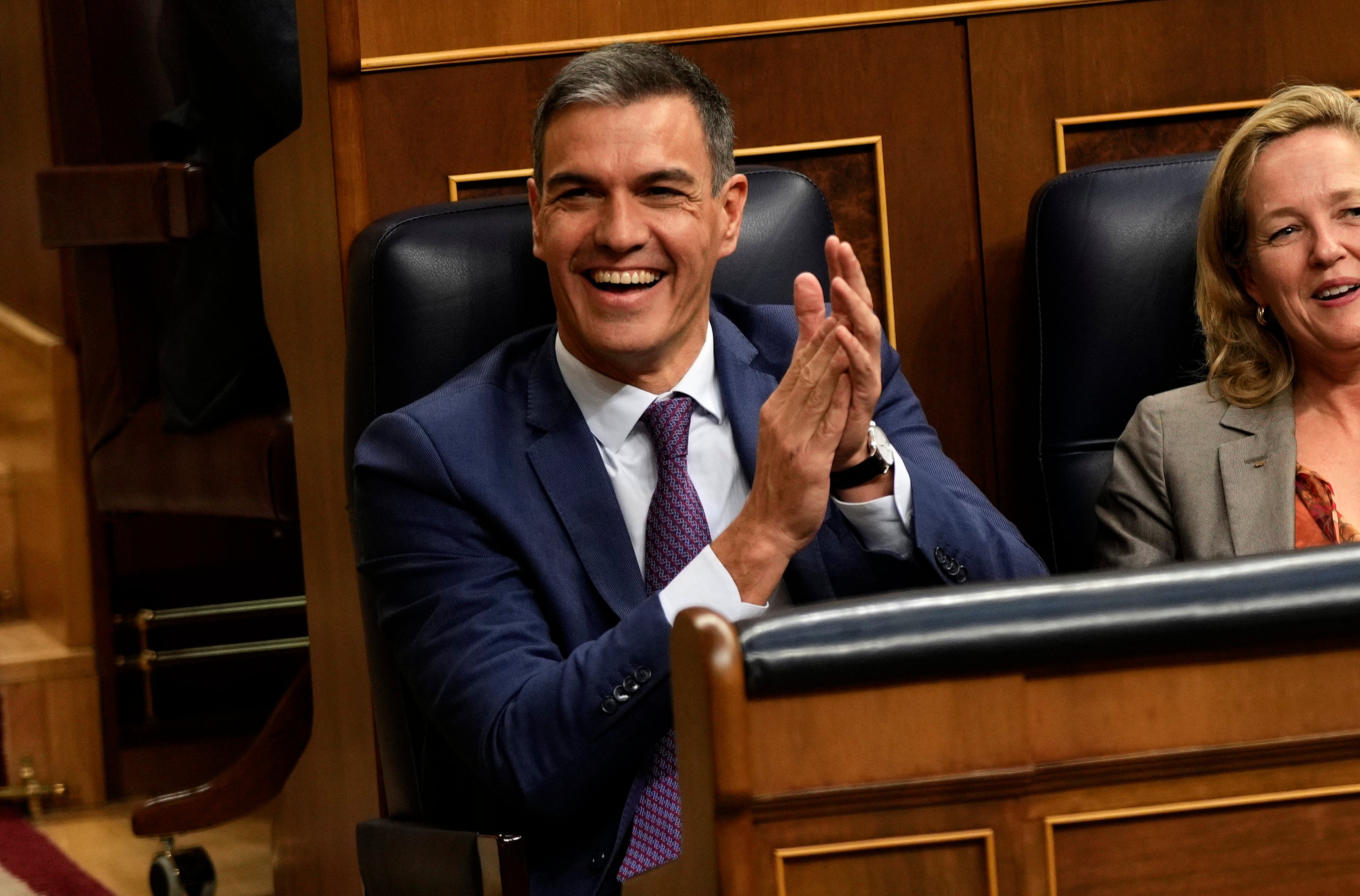Spain's king calls on acting Socialist Prime Minister Sánchez to try to from the government
Spain’s King Felipe VI has called on acting Socialist Prime Minister Pedro Sánchez to try to form a new government following talks with political party leaders to see which party has the best chance of gathering majority support in Parliament

Spain's King Felipe VI on Tuesday called on acting Socialist Prime Minister Pedro Sánchez to try to form a new government following a new round of talks with political party leaders to see which party has the best chance of mustering up majority support in Parliament.
Speaker of the House Francina Armengol made the announcement after she was summoned by the king once the two days of talks had finished.
The decision comes after Alberto Núñez Feijóo, head of the conservative opposition Popular Party, failed to win sufficient parliamentary support last week after the king initially designated him to try to from a government.
Sánchez’s party finished second behind the Popular Party in July 23 elections. The elections produced a splintered parliament made up of 350 legislators from 11 parties, making the path to power difficult for any party.
“I have accepted the king’s petition,” Sánchez said at a press conference on Tuesday and promised to work for a progressive government.
Sánchez said he would start work immediately on gathering support for the project and that he would hold talks with all parties, including the Popular Party, but not the extreme right group Vox.
If no government is in place by Nov. 27, another national election will be held on Jan. 14.
Feijóo’s bid was rejected by a vote 177-172 on Friday. Sánchez, whose party holds 122 seats, hopes he can now persuade the legislators who voted against Feijóo to back him and capture at least the required 176 votes for a majority.
The Socialists showed that it is possible by clinching the speaker of the chamber position for Armengol by 178 votes against 139 for the Popular Party candidate on August 17.
To succeed, Sanchez needs most of all to cement the support of two small parties that want independence for the northeastern region of Catalonia. In exchange for their support, both parties have made potentially explosive demands for a self-determination referendum for the region and an amnesty for hundreds, or possibly thousands of people who participated in a failed 2017 Catalan secession push that triggered the most serious crisis for Spain in decades.
The Popular Party and its ally Vox have vowed to fiercely contest any proposal for an amnesty or independence referendum.
Sánchez, 51, has been Spain’s prime minister for the past five years and is the country’s acting leader until a new government is formed.
His outgoing minority coalition government delivered bold policies in such areas as women’s rights and climate change. He called July’s snap election after his party had a poor showing in local and regional elections.
___
Associated Press writer Joseph Wilson in Barcelona, Spain, contributed to this report.
Bookmark popover
Removed from bookmarks